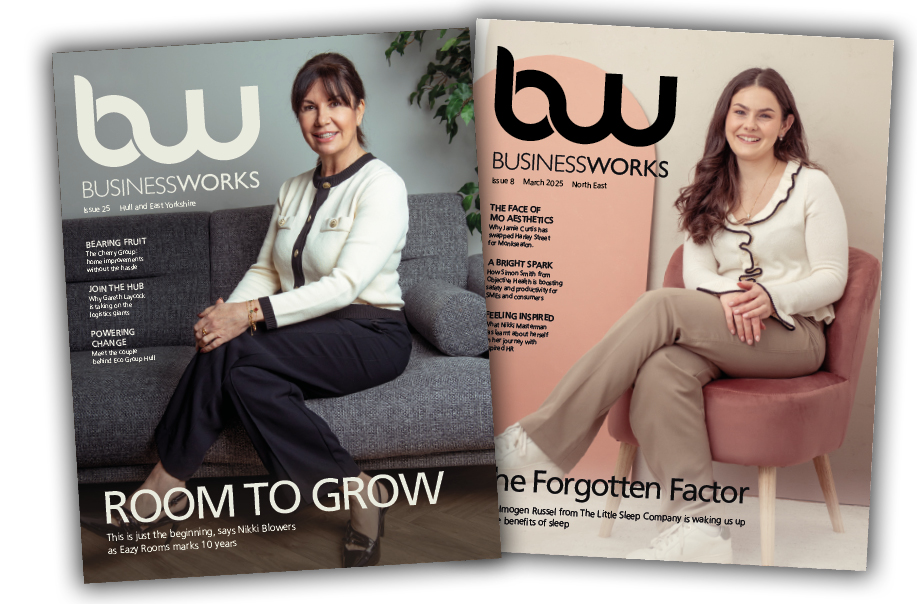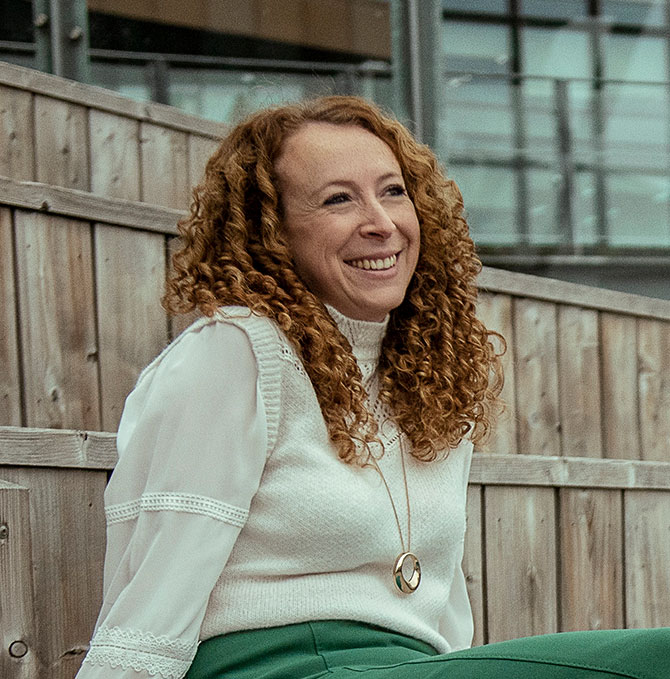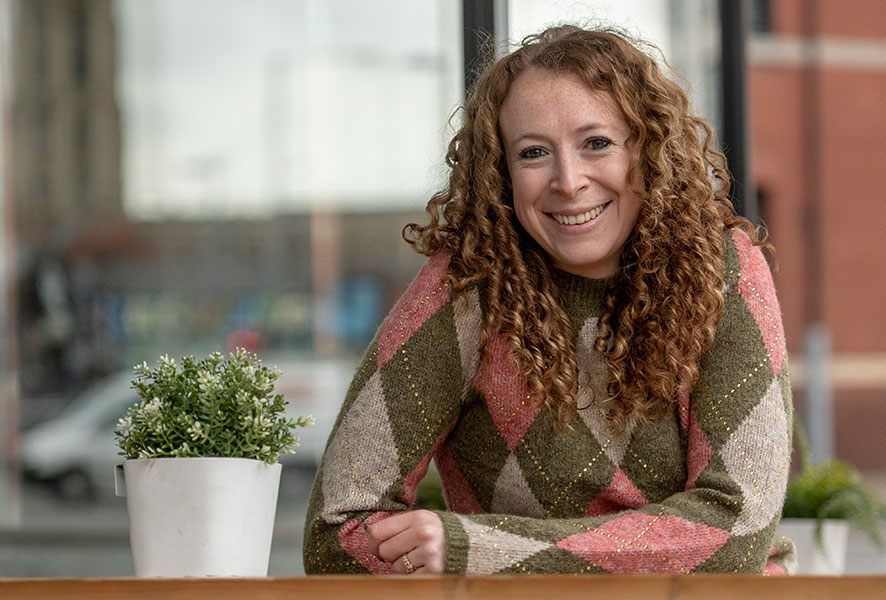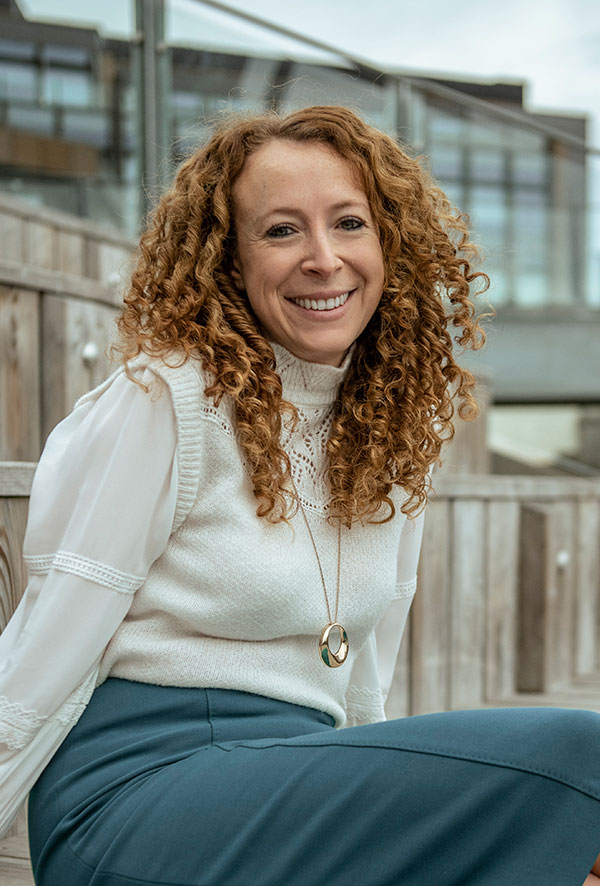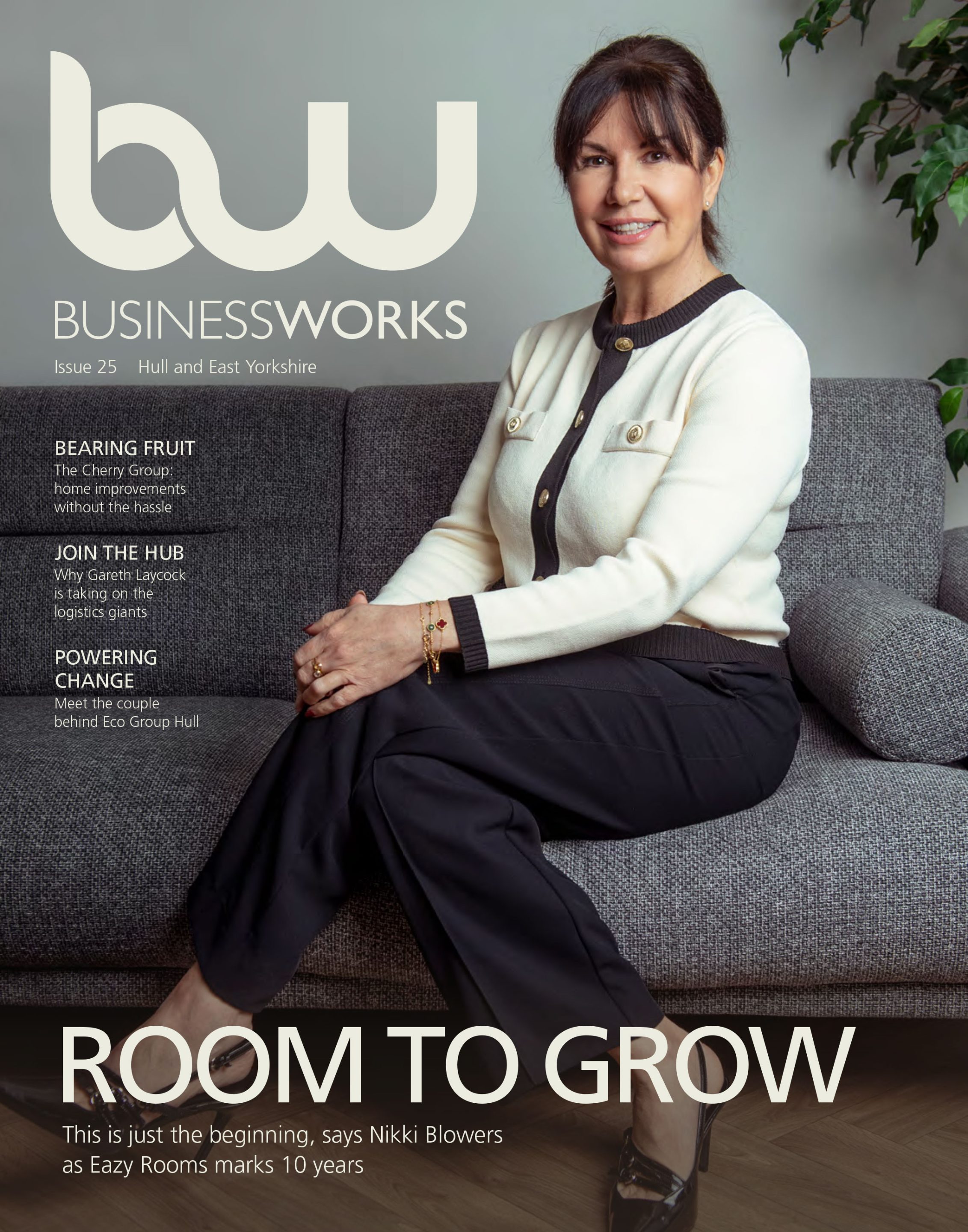What do you get if you cross knitting with financial advice?
It’s not a joke. In combining crafts with counsel, Amy Gray may have just hit on a novel idea that makes money matters less daunting – and most of us need all the financial help we can get in these trying times.
But before we explore Amy’s knitting, we’ll unravel the threads of how she came to be in the world of financial advice – because on leaving school she first set her sights on science, and embarked on a degree in chemistry at the University of Hull.
It wasn’t long, though, before she realised that it wasn’t for her. “I was a lot more sociable than your average chemist,” she says. “I just didn’t gel with it. I was thinking, I don’t want to work in a lab – I don’t want to work independently. I liked being around people and being part of a team. I wasn’t enjoying the course and couldn’t see me enjoying it as a career.”
Amy found a summer job at HSBC and, although she had fully intended to return to education, numerous career opportunities were opening up within the bank, so she decided to stay on and started a full-time job as a cashier.
“I loved it,” she says. “There was a great team there, and I could see lots of opportunities within such a huge organisation. I was really interested in the financial advice side of things from the beginning, so I asked some of the advisers who worked in the branch what I would need to do to get into it.”
Amy booked herself on to the relevant courses and began studying for her exams while working on the counter. It was supposed to be a three-year course, but she ended up getting a management role after about 18 months, looking after a portfolio of high-net-worth clients. “It was all about looking after people, which is what I love – going out and understanding them, as often the finances on paper don’t really tell a picture of who someone is.”
A turning point came in 2013, when the Retail Distribution Review led to major reforms in the industry. The aim was to improve the clarity with which firms describe their services – so customers know that the financial products and services delivered to them are clear, transparent and meet their needs – and to increase the professional standards of advisers. “The bank had to go through quite a bit of a restructuring because a lot of the advisers were not at the required level,” says Amy. “Fortunately, I’d already done my exams, so at that point I applied for a financial advice job, and got it.”
For the next nine years, Amy worked in a variety of financial advice roles, but her biggest frustration was the lack of control she had over her client portfolio. “Every two or three years, they would move us all around, giving us new clients and areas to look after. But the job is all about relationships. You’d just get used to people and then they’d say, right, you’re going to be working with some new clients now. I felt like I was doing a good job building relationships and then they would change everything.”
The pandemic transformed her working life yet further, as Amy was, like millions around the country, forced to become home-based and carry on over Zoom. It worked so well that the bank decided to keep the homeworking system in place and close some of its offices, and Amy’s portfolio underwent yet another restructuring.
At this point, she felt she needed to “break the cycle”, even though the prospect of going it alone was “super-scary”. On the plus side, she had a good salary, pension and company car, and knew the bank inside out. “I’ve got lots to thank them for,” she says. “They were great to me over the time. I was HSBC through and through – they often say that if you cut me in half, you’d see the HSBC logo!”
However, at the same time, something was pulling her away. “The biggest thing was that if I was going to do this job now for the next 25, 30 years, I wanted to look after the same clients over that term. I want to build relationships and see the plans we make play out. And I just couldn’t do that in the bank environment.”
Having worked for HSBC for so many years, Amy knew that trust in a brand was important, especially in the world of financial planning. So she decided to set up under the banner of St.. James’s Place, a FTSE 100 firm that manages £150 billion of clients’ assets. Its advisers are self-employed and have complete freedom to manage their business, but they operate secure in the knowledge that they have all the necessary legal and regulatory backing.
It was a leap for Amy, but, with two young children, it became more about work-life balance than money. “At the bank, everything was always about work, and it was very prescriptive in terms of the hours that I needed to be there. I just didn’t feel like I ever really had time for me. Looking back now, 18 months later, the biggest benefit for me is that I’ve got that balance again. I’m there for my children – I don’t miss their sports days, or the school play, and I can even do the school run a couple of times a week.”
Being limited to high-net-worth clients at the bank also meant she couldn’t help as many people as she wanted to. “Sometimes you’d look after a couple and they’d say their daughter needed some advice, but she might not have enough money to qualify, so she’d have to go to another adviser. Whereas now I can look after anybody – and whether someone’s got £20,000 or £5 million, people have the same concerns. Obviously, the more money they have, the more detailed planning is needed.”
People often joke about not having enough wealth to manage, and Amy says she might consider rebranding the “wealth management” tag – because anyone can benefit from financial planning.
“I find that as you progress through life and your assets and income begin to increase, you can start considering how to enhance your position,” says Amy. “This could mean anything from looking to retire early to paying private school fees. I work with clients who have sold businesses, received an inheritance or even in some cases won the lottery! Everyone’s priorities and objectives are different and it’s really important to me to understand those goals and then guide my clients to make important and often difficult financial decisions.”
She now has far greater freedom to spend a lot more time with clients, assessing their attitude to risk, tax situation and keeping abreast of any changes in legislation that might affect them. “I love working with clients to save money by making sure they are using all the allowances available to them,” Amy adds. “Sometimes structuring things slightly differently can have a huge impact. Regular contact and future planning review meetings are key to ensuring that we maximise wealth and stay on track to achieve clients’ goals and ambitions.”
However, having never run a business before, she found herself on a steep learning curve, and marketing herself was one of the biggest challenges. Like many people in the Hull and Humber area, she benefited hugely from the support of For Entrepreneurs Only, joining a peer group and the 360 programme. This has helped her recruit her first member of staff, as, in her own admission, she sometimes struggles to delegate.
“It’s been good working with Becky to help her to understand how things work. ‘Systems and processes’ was part of the 360 course and I thought, well, I don’t have any systems and processes! But of course I do – they’re just in my head because I don’t write them down. I just do them without even thinking. So, bringing Becky in at the same time as going through that was good. We would make a flow chart and write the process down, which has helped me to formalise a lot of what I do.”
Another of Amy’s passions is financial education. Through St. James’s Place, she runs Money Matters workshops in primary schools, explaining the basics, such as what mortgages and credit cards are, how investing works, etc. “I’ve done it in three different schools over the past year and it’s been nice to be able to give something back. Young people still aren’t given enough understanding of financial issues in schools, I feel.”
However, you must still be wondering… what about the knitting?
Having always been into crafts, Amy learned how to do arm knitting on a workshop a few years ago, and family and friends soon asked her to teach them how to do it, so she began hosting a few sessions of her own, setting up a business called Mahullsive Knits. But it was in the intervening period between leaving HSBC and waiting for her authorisations to come through for St. James’s Place that she decided to take it to the next level, running informal arm knitting sessions in a glamping tent in her garden.
Linking it to financial advice eventually came about because people were asking her what she did for a living. “Then they’d say, oh – can I just ask you a question about my pension? They saw me as much more approachable. They probably wouldn’t seek out a financial adviser, but if there was one in front of them…”
Thus knitting and knowledge was born. “I decided to run some networking sessions whereby people would come along, do a craft activity such as arm knitting, and also learn something at the same time,” says Amy, “whether it’s about financial advice for women, pensions or many other key topics. There is a short presentation, but then there is an enjoyable craft activity and a follow-up, so if anybody wants any further information, they can access it.”
It is, in Amy’s own admission, a “random” idea – but it puts a bit of fun into finance, which can never be a bad thing. She does also have plans to grow her financial business, saying it would be “amazing” to have another adviser working with her in the future.
At the workshops, Amy provides the chunky wool, and all the attendees have to do bring is their arms. And, as she told one person who was perhaps slightly confused as to whether they could keep the equipment, you can take them home with you, too…
Amy Gray Wealth Management Limited is an Appointed Representative of and represents only St. James’s Place Wealth Management plc (which is authorised and regulated by the Financial Conduct Authority) for the purpose of advising solely on the group’s wealth management products and services, more details of which are set out on the group’s website http://www.sjp.co.uk/products.

